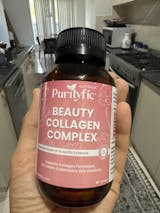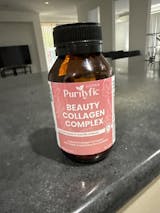
Good Choice of Vitamins for Liver Health

Meeting the nutritional needs including vitamins is something that should be done in order to maintain health, including for the liver. So, what are the various vitamins that are recommended for liver health?
List of Vitamins for Liver Health
The liver is an organ that plays an important role in storing and releasing energy from food. In addition, this digestive organ filters wastes in the blood and removes them from the body.
Given how important the liver is for the health of the body, you certainly need to take care of it. One way to maintain liver function can be achieved by meeting daily vitamin needs. Here's a list of vitamins that are good for your liver.
1. Vitamin D
Read: Types of Vitamins and Their Functions to Maximize Child Growth
One of the vitamins that are good for liver health is vitamin D. Vitamin D is a fat-soluble vitamin and is synthesized (formed) by the skin when exposed to UV rays from the sun.
Launching a study in the journal Nutrients, vitamin D deficiency is common in non-alcoholic fatty liver patients. This may be because vitamin D affects the production of adipokines, which are peptides (amino acid molecules) made by fat tissue.
Low levels of vitamin D result in inflammation, including in the liver. That's why, vitamin D is one of the vitamins that play an important role in maintaining liver health.
2. Vitamin E
Read: See These 7 Benefits of Vitamin E for Fertility
Vitamin E as a vitamin for the liver also has a major contribution to maintaining liver health. This vitamin is a type of strong antioxidant and can protect cells from damage caused by free radicals.
Experts also mention that this vitamin plays an important role in the development of the non-alcoholic fatty liver. This has been proven through research published in the journal Antioxidant.
The study showed that the antioxidant activity of vitamin E reduced the level of oxidative stress in non-alcoholic fatty liver patients. Even so, researchers still need further research to understand the progression of the disease.
3. Vitamin B3
Vitamin B3 (niacin) is an important nutrient for digestive health, including the liver. Vitamin B3 helps reduce cholesterol, fatty acid, and triglyceride levels. This turns out to have a big effect on the fat content of your liver.
Moreover, adequate intake of niacin was found to be good for non-alcoholic fatty liver patients. The reason is, that vitamin B3 may contribute to relieving the symptoms of this liver disease.
Even so, intake of too much vitamin B3, especially from supplements, can cause a number of side effects, including liver poisoning. A doctor's advice is needed to determine the daily niacin needs according to body conditions.
4. Vitamin B12
Did you know that liver disease can lead to vitamin B complex deficiency, especially vitamin B12? In fact, vitamin B12 is important to prevent anemia.
This condition generally occurs due to diet, for example, many patients with liver disease avoid eating meat to relieve liver function. Meanwhile, meat includes foods rich in vitamin B12.
When you don't get it, this vitamin doesn't function properly in the intestines, especially when you have cirrhosis of the liver. One solution is to take vitamin B12 supplements, which must be consulted with a doctor first.
5. Vitamin K
The next vitamin for the liver is vitamin K. Vitamin K has an important function in the synthesis (formation) of a number of proteins in the process of coagulation and anticoagulation.
Vitamin K deficiency can increase the risk of excessive bleeding and may affect liver health.
This is because the liver synthesizes bile acids and secretes them into the small intestine, which is a place to absorb lipids (fats). Meanwhile, vitamins require lipids for the absorption process.
Liver disease that causes decreased synthesis of bile salts can lead to absorption problems and vitamin K deficiency.
6. Vitamin C
Just like vitamin E, vitamin C includes antioxidants that can fight oxidative damage caused by free radicals. Therefore, vitamin C deficiency is also reported to tend to be found in non-alcoholic fatty liver patients.
You can get vitamin C from foods, such as citrus fruits or supplements. However, you still need to be careful when consuming it. Excess vitamin C can actually cause new problems that you don't want.
If you have further questions, please consult with your doctor to understand which vitamin is right for you.
Thus article about vitamins for liver health, hope this information is helpful!








